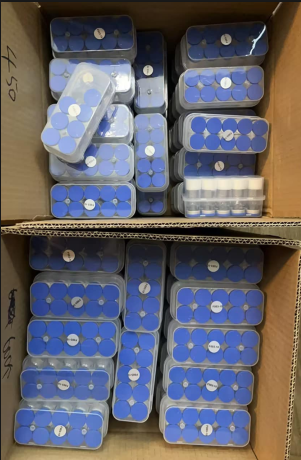
News
មិថុនា . 26, 2024 01:11 Back to list
3. Peptide Production Facilities
Peptides are a class of biomolecules that play a crucial role in various biological processes. They are short chains of amino acids, the building blocks of proteins, and are involved in regulating a wide range of cellular functions. With their diverse applications in medicine, research, and cosmetics, peptides have become an area of significant interest for manufacturers around the world.
In recent years, the demand for high-quality peptides has increased exponentially due to their potential in treating various diseases, including cancer, diabetes, and cardiovascular disorders. This has led to a surge in the number of peptide manufacturers worldwide, each striving to offer innovative and cost-effective solutions to meet the growing demand.
Peptide manufacturers must adhere to strict regulatory standards to ensure the safety and efficacy of their products. This includes obtaining necessary licenses and certifications from relevant authorities, as well as conducting thorough quality control tests throughout the production process. These measures help to ensure that the final products meet international standards and are safe for human use.
One of the key challenges facing peptide manufacturers is the complexity of peptide synthesis. Peptides can be synthesized using various methods, including solid-phase peptide synthesis (SPPS) and liquid-phase peptide synthesis (LPPS) Peptides can be synthesized using various methods, including solid-phase peptide synthesis (SPPS) and liquid-phase peptide synthesis (LPPS) Peptides can be synthesized using various methods, including solid-phase peptide synthesis (SPPS) and liquid-phase peptide synthesis (LPPS) Peptides can be synthesized using various methods, including solid-phase peptide synthesis (SPPS) and liquid-phase peptide synthesis (LPPS)
Peptides can be synthesized using various methods, including solid-phase peptide synthesis (SPPS) and liquid-phase peptide synthesis (LPPS) Peptides can be synthesized using various methods, including solid-phase peptide synthesis (SPPS) and liquid-phase peptide synthesis (LPPS) peptides manufacturers. Each method has its own advantages and disadvantages, and manufacturers must carefully evaluate which method is best suited for their specific needs.
Another challenge is the scalability of peptide production. As the demand for peptides continues to grow, manufacturers must find ways to increase their production capacity while maintaining high levels of quality and efficiency. This may involve investing in new equipment, optimizing production processes, or collaborating with other companies to share resources and expertise.
In conclusion, peptides are a vital class of biomolecules with a wide range of applications in various fields. The increasing demand for high-quality peptides has led to a surge in the number of manufacturers worldwide, each striving to offer innovative and cost-effective solutions. However, manufacturers must overcome several challenges, including the complexity of peptide synthesis and the scalability of production, to remain competitive in this rapidly evolving market.
peptides manufacturers. Each method has its own advantages and disadvantages, and manufacturers must carefully evaluate which method is best suited for their specific needs.
Another challenge is the scalability of peptide production. As the demand for peptides continues to grow, manufacturers must find ways to increase their production capacity while maintaining high levels of quality and efficiency. This may involve investing in new equipment, optimizing production processes, or collaborating with other companies to share resources and expertise.
In conclusion, peptides are a vital class of biomolecules with a wide range of applications in various fields. The increasing demand for high-quality peptides has led to a surge in the number of manufacturers worldwide, each striving to offer innovative and cost-effective solutions. However, manufacturers must overcome several challenges, including the complexity of peptide synthesis and the scalability of production, to remain competitive in this rapidly evolving market.
 Peptides can be synthesized using various methods, including solid-phase peptide synthesis (SPPS) and liquid-phase peptide synthesis (LPPS) Peptides can be synthesized using various methods, including solid-phase peptide synthesis (SPPS) and liquid-phase peptide synthesis (LPPS)
Peptides can be synthesized using various methods, including solid-phase peptide synthesis (SPPS) and liquid-phase peptide synthesis (LPPS) Peptides can be synthesized using various methods, including solid-phase peptide synthesis (SPPS) and liquid-phase peptide synthesis (LPPS) peptides manufacturers. Each method has its own advantages and disadvantages, and manufacturers must carefully evaluate which method is best suited for their specific needs.
Another challenge is the scalability of peptide production. As the demand for peptides continues to grow, manufacturers must find ways to increase their production capacity while maintaining high levels of quality and efficiency. This may involve investing in new equipment, optimizing production processes, or collaborating with other companies to share resources and expertise.
In conclusion, peptides are a vital class of biomolecules with a wide range of applications in various fields. The increasing demand for high-quality peptides has led to a surge in the number of manufacturers worldwide, each striving to offer innovative and cost-effective solutions. However, manufacturers must overcome several challenges, including the complexity of peptide synthesis and the scalability of production, to remain competitive in this rapidly evolving market.
peptides manufacturers. Each method has its own advantages and disadvantages, and manufacturers must carefully evaluate which method is best suited for their specific needs.
Another challenge is the scalability of peptide production. As the demand for peptides continues to grow, manufacturers must find ways to increase their production capacity while maintaining high levels of quality and efficiency. This may involve investing in new equipment, optimizing production processes, or collaborating with other companies to share resources and expertise.
In conclusion, peptides are a vital class of biomolecules with a wide range of applications in various fields. The increasing demand for high-quality peptides has led to a surge in the number of manufacturers worldwide, each striving to offer innovative and cost-effective solutions. However, manufacturers must overcome several challenges, including the complexity of peptide synthesis and the scalability of production, to remain competitive in this rapidly evolving market. Share
Latest news
-
Using tadalafil to promote hair growth and combat hair loss effectively.
NewsJul.10,2024
-
Generating a title similar to palmitoyl oligopeptide could be Oligopeptide containing palmitoyl for skincare benefits and rejuvenation.
NewsJul.10,2024
-
Similarity of the compound tra% 100mg/ml in different pharmaceutical formulations
NewsJul.10,2024
-
Negative impacts of tadalafil on health and well-being
NewsJul.10,2024
-
Anastrozole 0.5 mg twice per week for treatment of cancer patients
NewsJul.10,2024
-
Reviewing the effectiveness of kisspeptin in enhancing reproductive health and fertility.
NewsJul.10,2024
